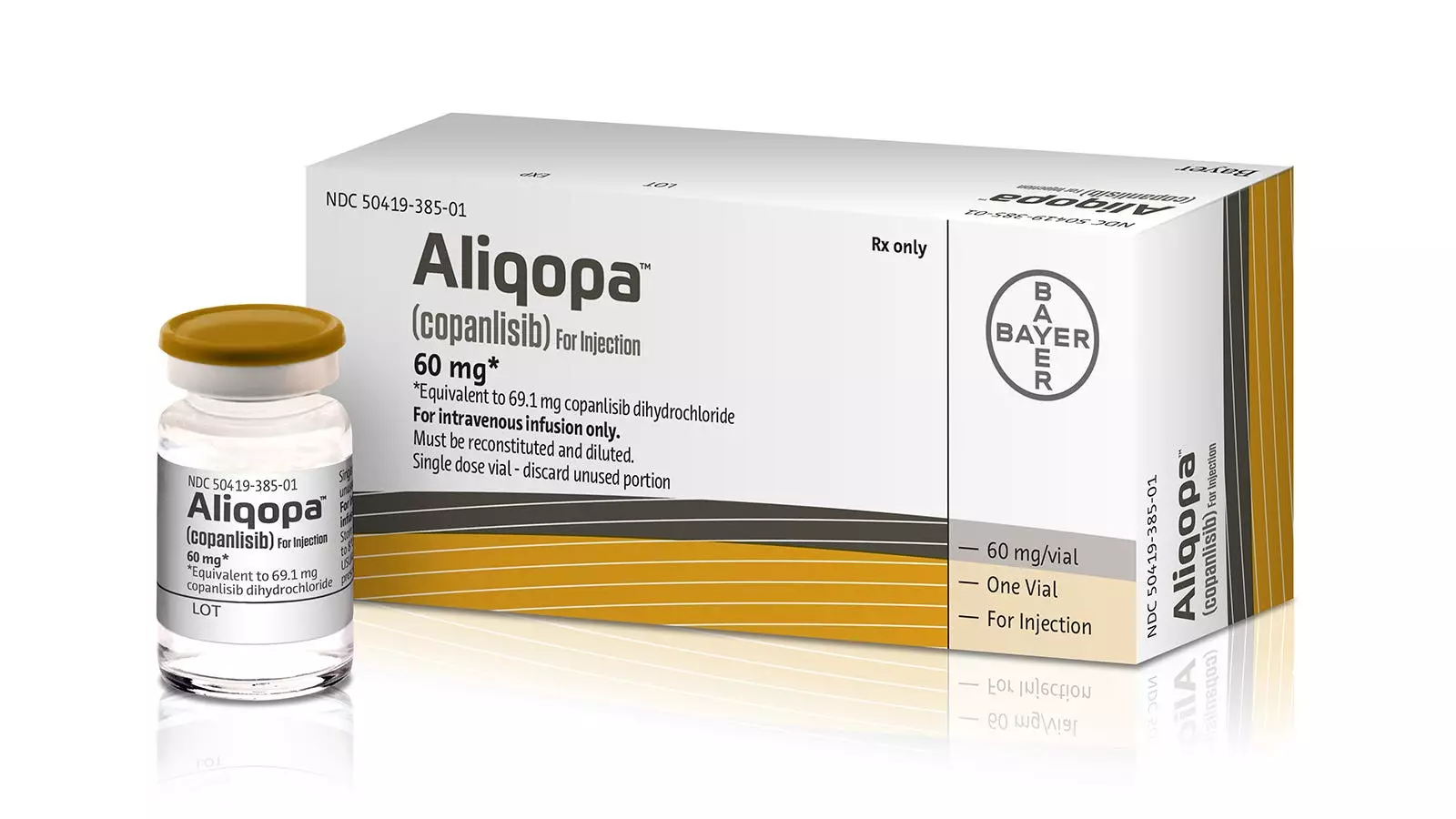Bayer recently announced its decision to withdraw its follicular lymphoma drug, copanlisib (Aliqopa), from the U.S. market. This move comes after the drug failed a confirmatory study, known as CHRONOS-4, and discussions with the FDA. The phase III study was required as a condition for the PI3K inhibitor’s accelerated approval. The study aimed to evaluate whether adding copanlisib to standard immunochemotherapy could improve progression-free survival (PFS) in patients with relapsed follicular lymphoma. Unfortunately, the results showed that copanlisib did not provide any additional benefit when compared to immunochemotherapy alone.
As a consequence of the failed study, Bayer has recommended that no new patients be prescribed copanlisib. However, the company is exploring access options for patients who are currently receiving Aliqopa and have shown a favorable response to the treatment. Bayer is considering continuing treatment for these patients if their physician supports the decision and if there are no suitable alternative treatments available.
Bayer’s decision to withdraw copanlisib from the market is part of a larger trend in the FDA’s approach towards PI3K inhibitors. Other drugs in this class, such as umbralisib and idelalisib, have already been pulled from the market or had indications withdrawn due to safety concerns and potential overall survival (OS) detriment. The FDA’s Oncologic Drugs Advisory Committee has also made it clear that future applications for PI3K inhibitors in hematologic cancers should be supported by randomized trial data.
The FDA initially granted accelerated approval to copanlisib in 2017 based on data from the phase II CHRONOS-1 trial. This trial showed promising results, with the PI3K inhibitor inducing responses in 59% of patients and complete responses in 14%. The median duration of response was 12.2 months. However, the subsequent phase III CHRONOS-3 trial, which evaluated the addition of copanlisib to rituximab in relapsed indolent non-Hodgkin’s lymphoma, raised concerns. While the trial demonstrated improved PFS with the combination therapy, there was no significant benefit in overall survival for either the overall population or the follicular lymphoma subgroup.
One of the key factors that contributed to the FDA’s concern was an early dip in the survival curve for patients receiving the combination treatment. This raised questions about the long-term efficacy and safety of copanlisib. With the failed confirmatory study and the lack of demonstrated overall survival benefit, the FDA deemed it necessary to reassess the risk-benefit profile of copanlisib.
Bayer’s decision to withdraw copanlisib from the U.S. market is a result of a failed confirmatory study and discussions with the FDA. The lack of demonstrated improvement in progression-free survival and the concerns raised regarding overall survival have led to a broader crackdown on PI3K inhibitors. Patients who are currently receiving copanlisib and have shown a favorable response to the treatment may still have access to the drug, pending their physician’s support and the absence of suitable alternative treatments. Moving forward, it is crucial for pharmaceutical companies to provide robust randomized trial data to support the approval and continued use of PI3K inhibitors in the treatment of hematologic cancers.


Leave a Reply